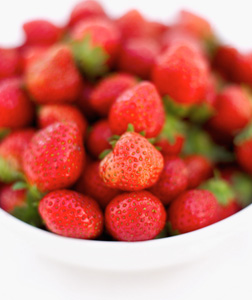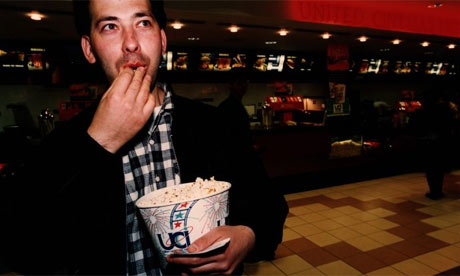 A worker makes popcorn at a Denver theater. A Center for Science in the Public Interest study found that 20 cups of one chain's popcorn contains 1,200 calories, 60 grams of saturated fat, and 980 milligrams of sodium. (Matthew Staver, Bloomberg / October 16, 2009)
A worker makes popcorn at a Denver theater. A Center for Science in the Public Interest study found that 20 cups of one chain's popcorn contains 1,200 calories, 60 grams of saturated fat, and 980 milligrams of sodium. (Matthew Staver, Bloomberg / October 16, 2009)From The L.A. Times:
A medium-sized popcorn and medium soda at the nation's largest movie chain pack the nutritional equivalent of three Quarter Pounders topped with 12 pats of butter, according to a report released today by the advocacy group Center for Science in the Public Interest.
The group's second look at movie theater concessions -- the last was 15 years ago -- found little had changed in a decade and a half, despite theaters' attempts to reformulate.
Read more ....

















